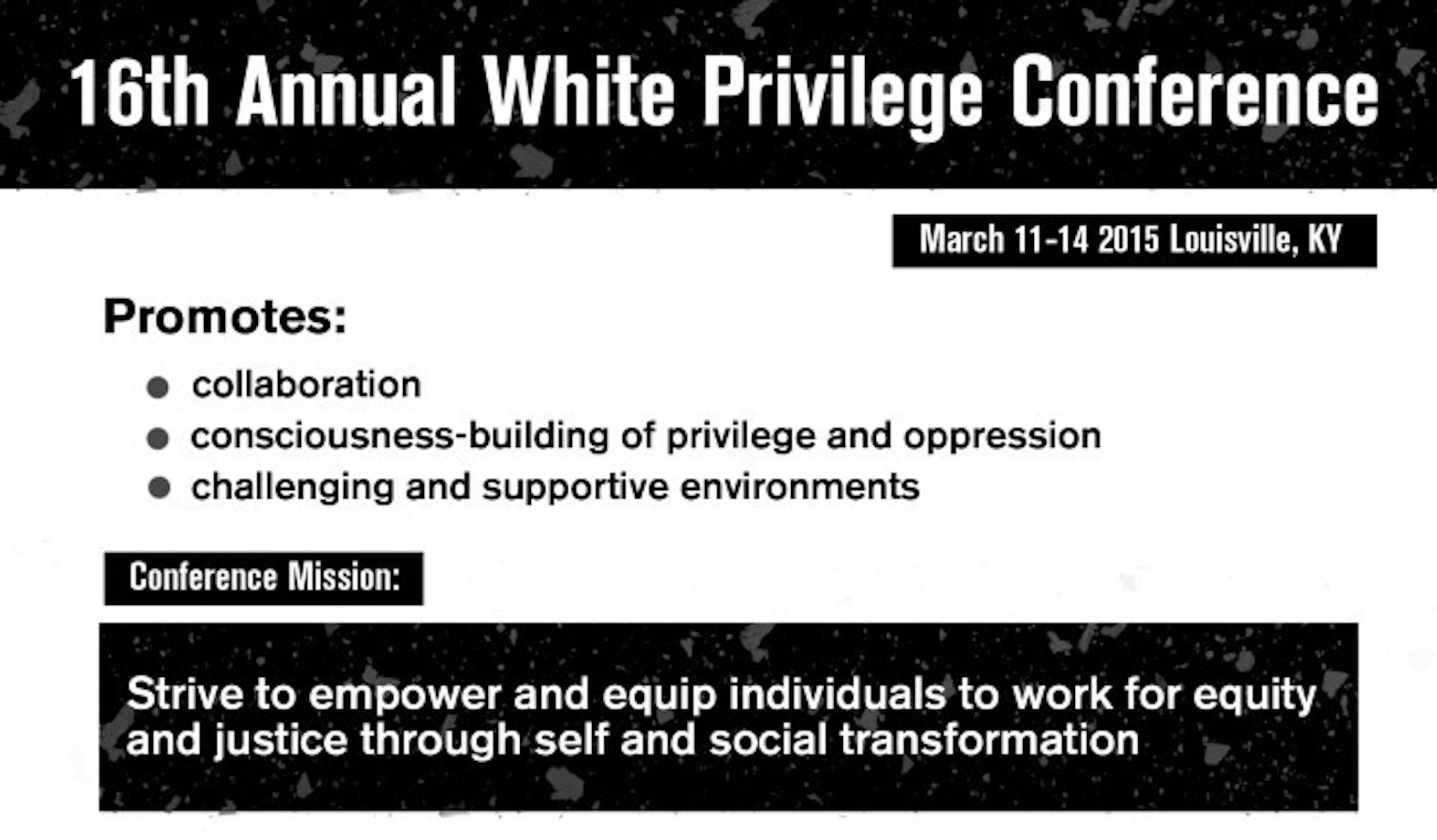Notre Dame students in the White Privilege Seminar, An Introduction to the Intersections of Privilege, examined oppression and privilege at the White Privilege Conference (WPC) in Louisville, Kentucky, on March 11-14.
According to its website, WPC is committed to “understanding, respecting and connecting.” The conference — which held more than 1,500 attendees this year — seeks to confront issues beyond skin color and invite different perspectives regarding the issues of privilege, the website said.
“I think that I wasn’t there to necessarily learn but more so to absorb and understand,” sophomore Marlen Grussi said. “I feel like more than going to learn facts, I was able to become more aware of other people's experiences and feel more sensitive to those experiences.”
Grussi said she realized during the conference that every person plays a role in privilege and are often unaware of the injustices they may perpetuate.
“The conference itself really did allow all of us to lean into discomfort by approaching topics that, as students, we don't get the opportunity to unveil in a classroom setting and much less in a social setting,” Grussi said.
Sophomore Hugo Munoz said he appreciated the opportunity to attend WPC because it initiated a necessary conversation about privileges in race, sexuality and gender, as well as other controversial topics.
“I think that the most important thing I got out of it is how [privilege] is a problem that affects us all,” Munoz said. “It is invisible to people in my position, but it has a passive impact in my social group and a violently explicit one in minorities.”
Both Grussi and Munoz said there were undeniable ties between the seminar class and the conference.
“The biggest connection between the conference and our class is the ability to listen to differing opinions from people who have a true interest in the content of our conversations,” Grussi said.
Munoz said the class offered limited preparation to engage with the topic on a more complex and physically larger level.
“Thanks to the class, we were not people without understanding over the topic,” Munoz said. “However, it is really hard to be fully prepared to such an intense experience.”
Grussi said seminar students were encouraged to reflect on the topic as well as finish a research paper after the conference. However, she said her reflection does not end after completing mandatory assignments.
“After the conference, I realize that there is work to be done on campus, and by my own volition, I intend to work more diligently towards building our community’s ability to respect one another and to be more self-aware,” Grussi said.
Munoz said he thinks it is important to talk about white privilege at Notre Dame because graduates will become contributing members of society through a variety of careers.
“We need to acknowledge that our very own classmates are going to have the power to change our society — we just need to make sure they see it as a problem that needs a real solution soon,” Munoz said.













